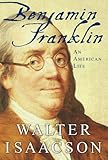This is good advice, from Making Ideas Happen: Overcoming the Obstacles Between Vision and Reality:
When it comes to organizing your action steps of the day — and how your energy will be allocated — create two lists: one for urgent items and another for important ones. Long-term goals and priorities deserve a list of their own and should not compete against the urgent items that can consume your day. Once you have two lists, you can preserve different periods of time to focus on each.
